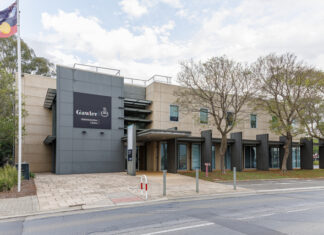THE upcoming Referendum to amend our national constitution to recognise First Nations Australians and to create a permanent advisory body is a simple, but profound act.
Simple, because the proposed changes are quite minor, in that the constitution will formally recognise First Nations Australians as the original custodians of this land, and secondly, empower the national parliament to legislate for a permanent advisory body, that can advise the national parliament and national executive council.
The two proposals are simple and well defined.
So why is it a profound act?
That answer doesn’t lie in the law but rather in the opportunity it creates to rebuild and redefine the relationship between the First Australians and those who have arrived here since 1788.
In the early days we, as newcomers to this land, displaced the First Nations people not only from their land but also from their culture, their way of life.
Then we did it for them; a welfare system that has kept them marginalised.
In other words, we always walked in front of them.
This referendum is about nonindigenous Australians walking alongside our First Nations Australians to build a better future for all.
Having read and re-read both the Uluru Statement from the Heart and the Law passed by the Federal Parliament to create the Referendum, I have found it difficult to understand some of the claims made about what we are voting for.
We live in a democratic society, so votes like this are about a contest of ideas and values.
Australians have always been proud to believe that everybody should have a ‘fair go’ and do what is best for the nation.
We are sometimes at our best, during a national crisis, where we put aside our differences and pitch in for the common good.
I think this referendum is about pitching in for the common good.
Personally, I have found the slogan, “if you don’t know, vote no,” a little patronising and demeaning.
Rather than encouraging people to go out there and learn about what the referendum is about, elements in the “no” campaign are urging people to remain ignorant.
If this is what Australia believes, then we shouldn’t be surprised about our falling educational outcomes.
How can we urge our children and young adults to learn and be the best they can, or the best in the world, when we have societal leaders calling on voters who don’t know, to not bother finding out?
Our democracy grants us many rights, but they come with responsibilities.
One of those responsibilities is to protect our democracy by engaging in the political process.
Ask questions.
Express your views.
Find out and form your own opinion.
I will be voting yes at this referendum, for the reasons I have outlined above.
And those reasons are based on my reading of the two documents that really matter; the Uluru Statement from the Heart and the Law passed by Federal Parliament to create the Referendum.
I am also, in part, influenced by the fact that over 70% of young Australians aged 18-35 years intend to vote Yes, according to recent opinion polls.
This referendum will impact on their lives and world more than mine, so I think I should be listening to what they are saying.
All I ask of you; is to read the two documents I have referred to and make up your own mind as to which way your conscience dictates you to vote.
I trust your judgement.
I do not intend to add to the noise by telling you how you should vote.
Copies of both documents are available on my website at tonypiccolo.org or from my electorate office at 148 Murray St, Gawler.
And I thank you for reading this far.
Member for Light Tony Piccolo MP









